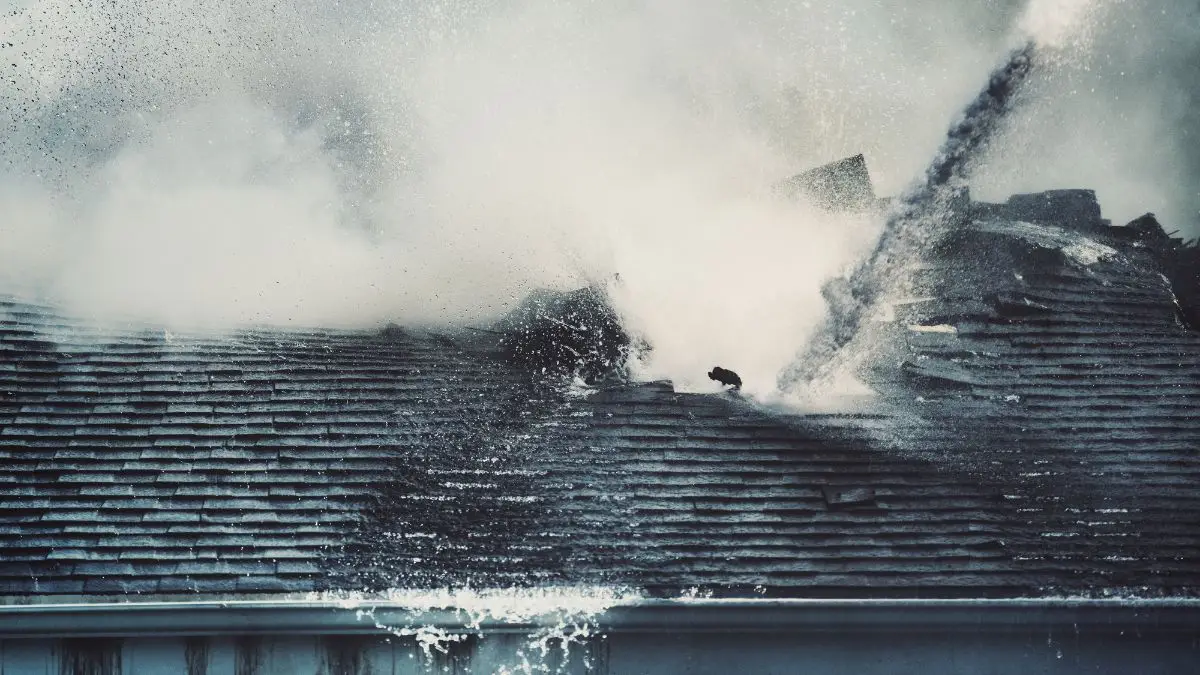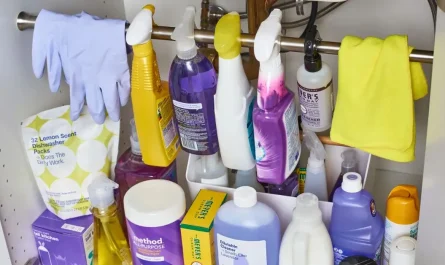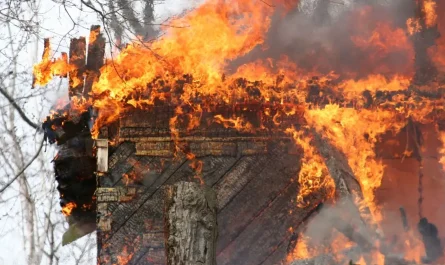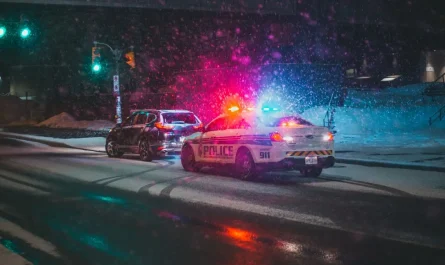Wisconsin Rapids Blaze Leaves Home Damaged, No Injuries
Over the years, I have seen many tales of house fires, but this one in Wisconsin Rapids struck in a unique way. On Friday afternoon, a family’s house on 16th Street South caught fire. Around 1:30 p.m., firefighters hurried in to put out the flames and heavy smoke that were quickly encroaching on the house.
The good news? There were no injuries inside. That is uncommon in a fire this severe. Unfortunately, the family’s dog did not survive. You know it’s more than simply an animal if you’ve ever lost a pet. It is comparable to losing a member of the family.
The family is currently displaced but safe. While their home is being assessed and their recuperation starts, they are depending on the Red Cross for short-term assistance.
If your house suddenly caught fire, how would you respond? Do you know who you’ll call first or where you’ll stay?
Timeline of the Fire Response
The fire call was received just before 1:30 p.m. on Friday, according to a report from WSAW News Channel 7. Smoke and flames were already streaming from the house when firemen arrived at 16th Street South.
I want you to take a moment to consider how the narrative might have turned out if that call had been postponed by even a few minutes.
The difference between a near-tragic event and a true tragedy was the promptness of the response.
Multiple Agencies Join Hands
I was struck by how many individuals volunteered to help. The Wisconsin Rapids Fire Department wasn’t acting alone in this. Rudolph, Vesper, Port Edwards, and Grand Rapids crews all arrived. Co-responders and police were also present.
The Wisconsin Rapids Fire Department even posted pictures from the reaction on Facebook.
Such collaboration serves as a reminder of the vital role first responders play in small communities.
Human Impact Family Displaced, Pet Lost
The part that always hits the most is this one. Their dog did not survive, but the family did. If you’ve ever had a pet, you understand how empty a home seems when they’re gone. It is heartbreaking enough to lose a home, but losing a pet at the same time is an entirely different experience.
The Red Cross immediately intervened to offer short-term assistance. At least the family will have a safe place to remain while they decide what to do next.
If you couldn’t return to your own bed tonight, where would you go? It’s simple to read “displaced” in a headline and scroll past it.
Unfortunately, this is not the first time that a man and his dog have perished in a Cheshire fire.
Cause of the Fire & Ongoing Investigation
As of right now, investigators have not declared a cause. To be honest, you and I can both learn from that uncertainty. The majority of home fires are caused by commonplace hazards like bad wiring, overloaded outlets, or even something as basic as leaving a candle burning.
Until the study is released, we can be certain that fire has the power to completely upend your world in a matter of minutes, regardless of how ordinary your day seems.
For this reason, preventative measures like testing smoke alarms are important. They are tools for survival.
Damage Assessment & Safety Lessons
The house was severely damaged by the fire. To visualize the aftermath—charred siding, smoke-stained walls, and the lingering, days-long stench of burnt wood—you don’t need to view the photos. Families are forced to start over because of this type of devastation.
I want to address you immediately now: home fires are not uncommon. Every year, U.S. fire departments respond to over 350,000 house structure fires, according to the National Fire Protection Association (NFPA). Preparation is the only thing that can alter results. The chance of dying in a fire is reduced by almost half when smoke alarms are operational.
The family did indeed lose their house, but they survived thanks to timing, reaction, and possibly even functional safety features.
A Salem house fire earlier this year caused losses of about $300,000, demonstrating the devastation that even one fire may inflict.
Community Response & Support Efforts
You truly see the strength of a community when tragedy strikes. The Red Cross, neighbors, and local responders all stepped in. When you’re standing outside your burned-out house with nothing more than the clothes on your back, temporary lodging, supplies, and even just emotional support are important.
You can sense the compassion as you go through the Facebook comments left on the fire department’s post. Some are praying, while others are asking how they can help or donate. It’s true, but you won’t see it in the official news stories.
And perhaps that serves as a reminder to us: you don’t have to be a firefighter to help someone in your town when they are in danger. Sometimes it’s sufficient to simply show up or give a place to stay.
Now tell me, what part would you play if this occurred in your neighborhood? Would you be the buddy checking in on social media, the neighbor providing assistance, or the person dialing 911?
Fire Safety Tips & Prevention Insights
I can’t help but wonder what if it had been my house every time I read of a fire like this. What if it belonged to you? In actuality, the most of us aren’t as ready as we ought to be.
Here are some immediate actions you can take:
-
Check your smoke alarms
one on every level, test monthly, replace batteries yearly. -
Plan two exits
from every room in your house. Practice with your family, even if it feels silly. -
Keep fire extinguishers
in your kitchen and garage. Know how to use them. -
Avoid overloading outlets
most electrical fires start there.
Families are frequently reminded by the Red Cross that once a fire starts, you might only have two minutes to flee. Two minutes. Planning is important because of this.
If nothing else, use this anecdote as motivation to perform a quick fire safety inspection this evening.
By the way, if you like staying updated on real-time fire safety tips and local incident alerts, you can follow our WhatsApp updates It’s an easy method to keep your family more organized.
Broader Context Recent Fires in Wisconsin Rapids
This is not a singular instance. Just last week, another fire in Wisconsin Rapids forced residents out of their home on Oak Street. A garage fire earlier this summer also made news.
When you step back, you see a worrying pattern: multiple fires, all in a small city, all within weeks. That tells me two things one, the fire department is under constant pressure, and two, as residents we can t treat these incidents as rare accidents.
If you live in or around Wisconsin Rapids, this is your wake-up call. Fire safety isn t someone else s problem until it lands on your doorstep.
And in other parts of the country, the risks are just as real like aPhoenix mobile home firewhere both a person and a dog sadly didn t survive.
Aftermath & What s Next
Right now, the family is focusing on recovery with the Red Cross and neighbors helping them get through the first few nights. Investigators will share the official cause soon, but what matters more is how quickly the community rallies to make sure no one is left behind.
For the rest of us, the what s next is personal: will we learn from this? Will we make sure our own homes are safer, our families better prepared?
I ll leave you with this: disasters don t give you warnings. But you do get the chance to prepare today. What s one step you ll take after reading this check your smoke alarm, or finally talk to your family about an escape plan?
If you re interested in reading more stories like this, you can check out our latest coverage onBuild Like New.
Disclaimer:This report is based on publicly available news sources and community updates. Details may change as official investigations continue. Always follow local fire department guidance for safety and prevention.
Contents Table
-
Timeline of the Fire Response
-
Multiple Agencies Join Hands
-
Human Impact Family Displaced, Pet Lost
-
Cause of the Fire & Ongoing Investigation
-
Damage Assessment & Safety Lessons
-
Community Response & Support Efforts
-
Fire Safety Tips & Prevention Insights
-
Broader Context Recent Fires in Wisconsin Rapids
-
Aftermath & What s Next




